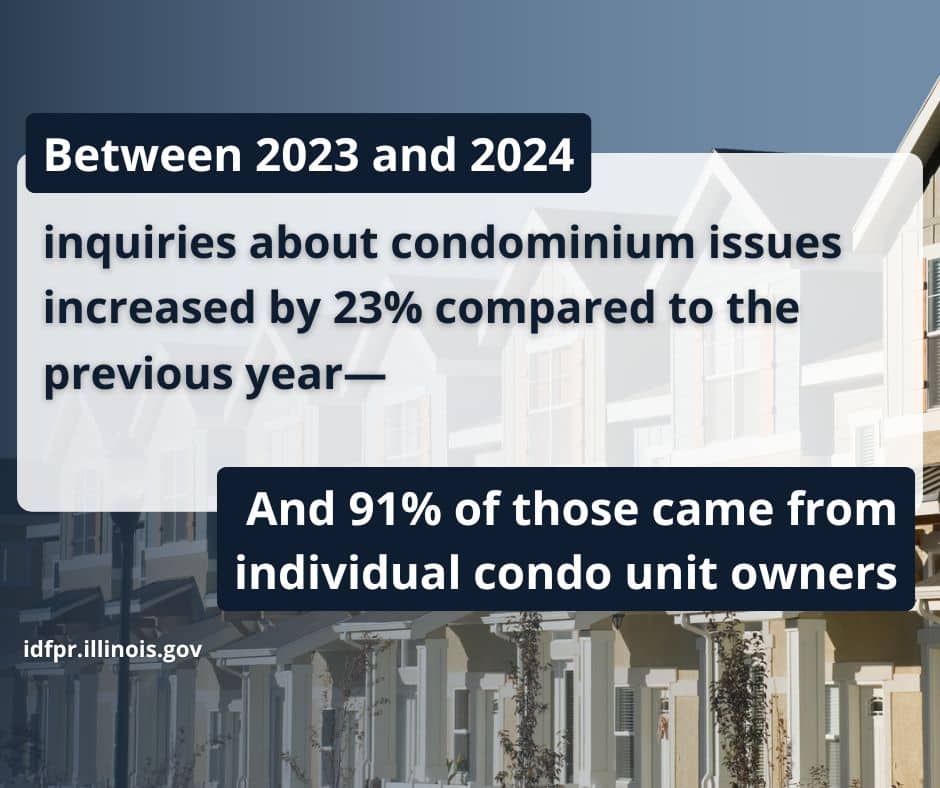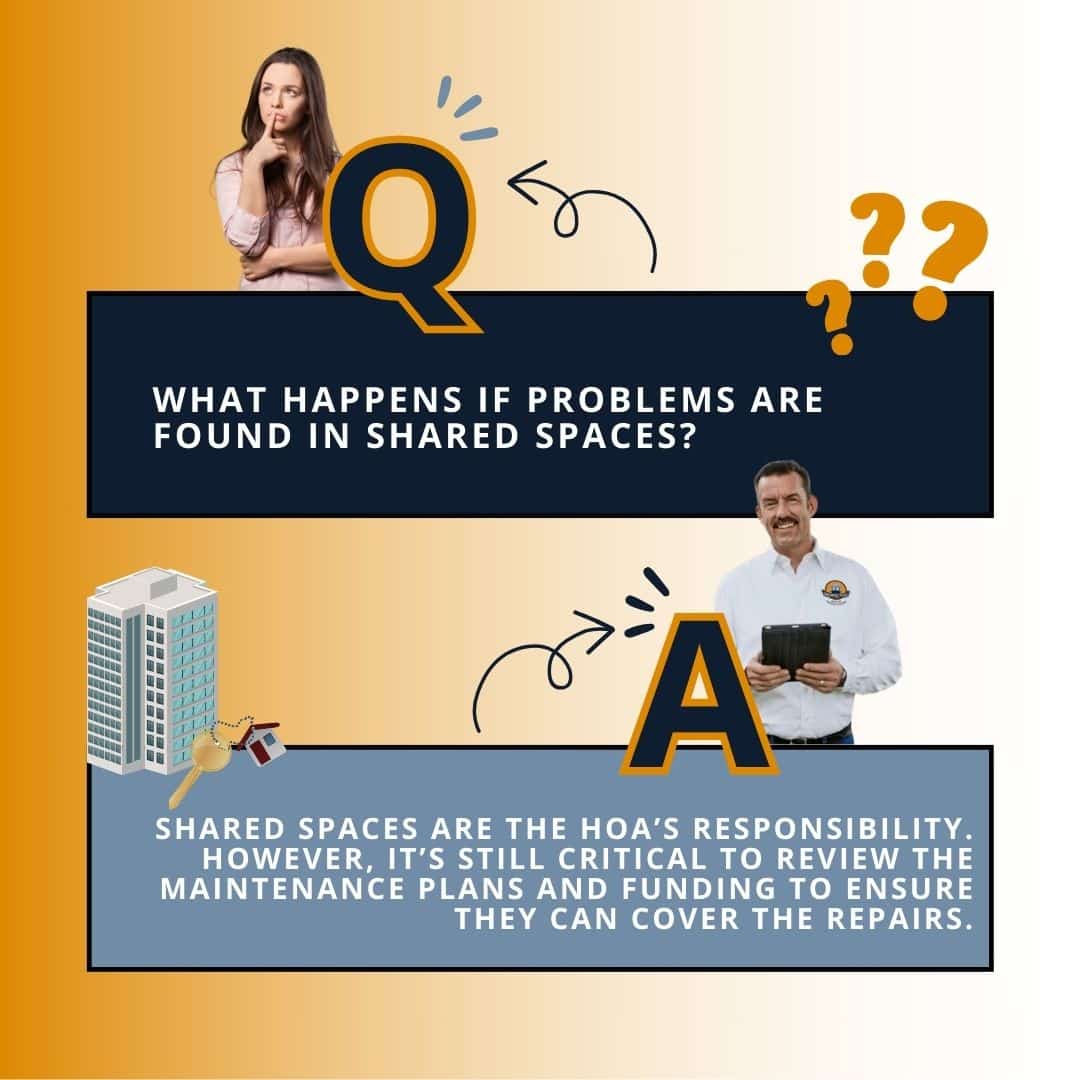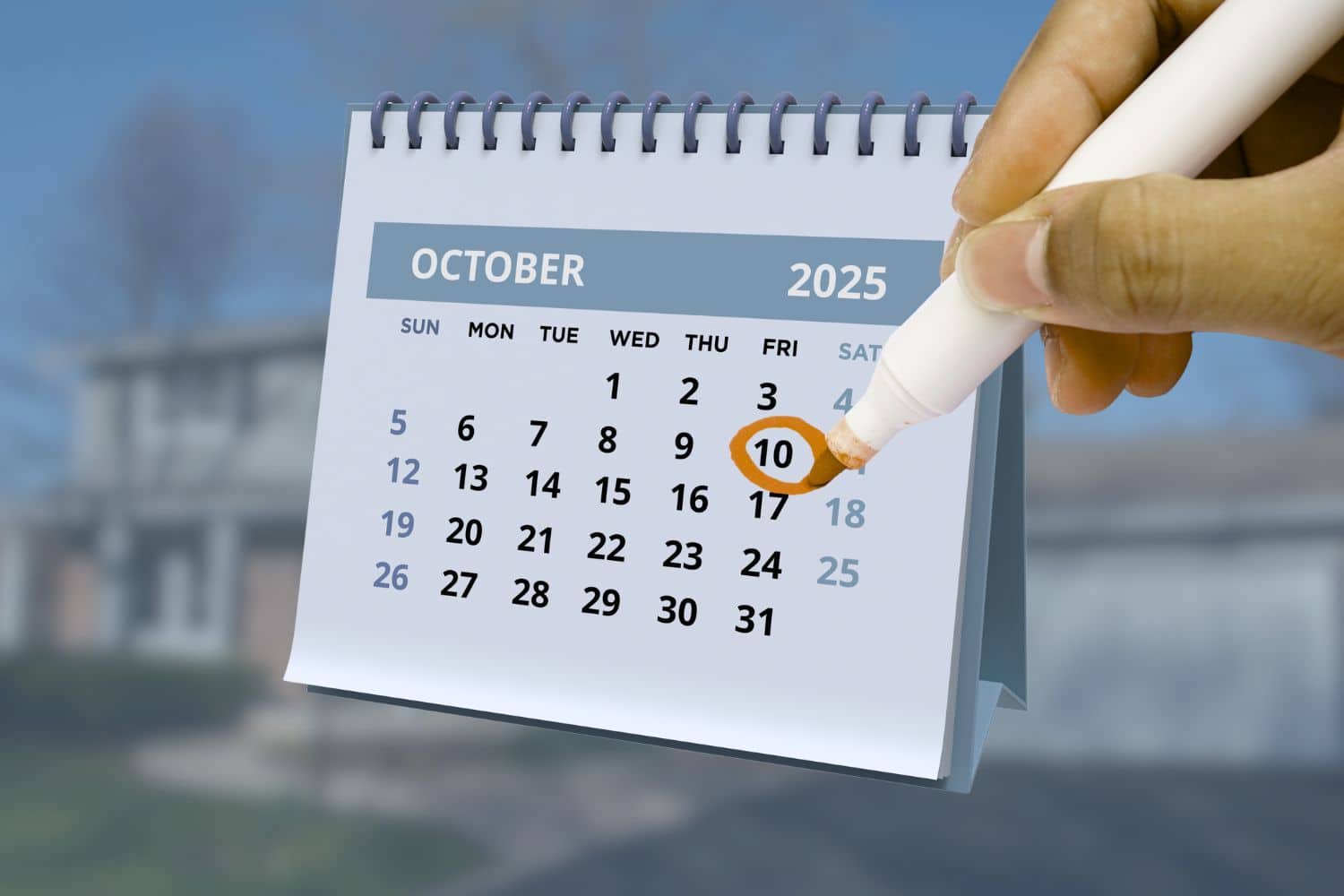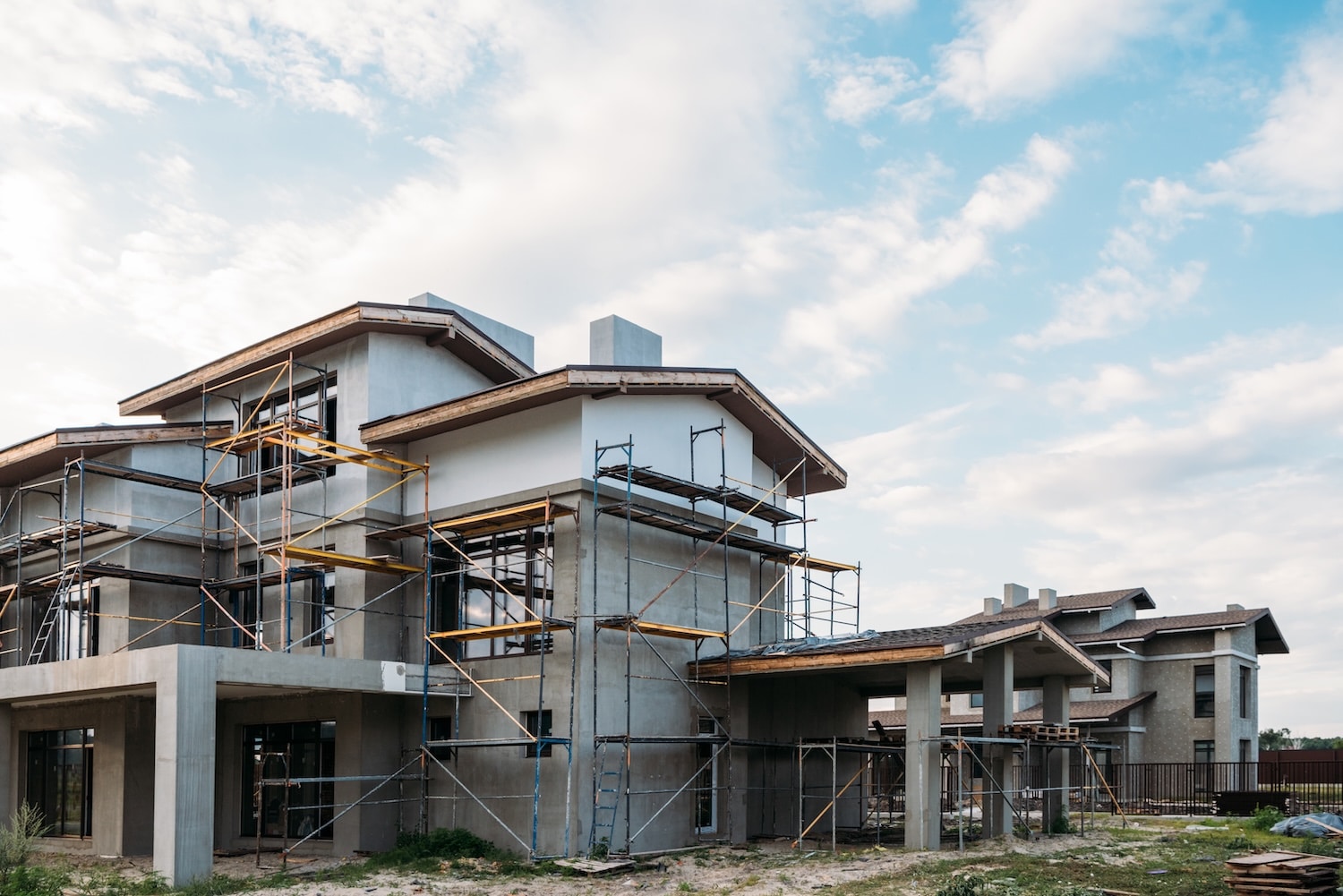Buying your condo is an exciting milestone, but it comes with its own set of challenges. A condo inspection helps uncover hidden issues in both your new home and any shared spaces you’ll rely on.
Why a Condo Inspection Matters
Getting a condo inspected is the first critical step in protecting your investment. It allows you to identify potential problems and plan for them before they get more expensive to address, and repair credits are less likely.
Unlike single-family homes, condos have shared spaces and systems managed by a homeowners association (HOA).
Between July 2023 and 2024, there was a 23% rise in written inquiries compared to the previous reporting period. Owners accounted for 91% of those inquiries, while board members made up approximately 6%. That’s the primary reason to get your independent condo inspection before you close a deal—better safe than sorry!
- Shared Spaces: Inspectors evaluate areas like roofs, hallways, elevators, and parking lots, that aren’t present in single-family homes.
- HOA Oversights: Inspectors may flag issues that fall under HOA responsibility, such as exterior repairs or structural problems.
- Unique Documents: Condo inspections often involve reviewing HOA documents to identify long-term maintenance plans, reserve funds, and any upcoming assessments that could impact you.

What to Expect During the Inspection
A condo home inspection focuses on two main areas: your individual unit and the shared spaces within the building. Here’s what the process typically includes:
- Evaluating plumbing, electrical systems, and HVAC for functionality and safety.
- Checking windows, doors, walls, ceilings, and flooring for damage or defects.
- Inspecting kitchen and bathroom fixtures, appliances, and ventilation systems.
After the Inspection
When the inspection wraps up, you’ll receive a detailed report outlining the inspector’s findings. This report is designed to help you understand the condition of the condo and its shared spaces.
- Detailed Descriptions: The report highlights any issues found, from minor cosmetic defects to significant problems like water damage or faulty systems.
- Photos and Notes: Visual documentation paired with clear notes makes it easy to understand areas of concern.
- Repair Recommendations: Suggestions for next steps, such as immediate repairs, further evaluations, or monitoring minor issues.
- Responsibility Clarity: Notes on whether each issue is the responsibility of the homeowner, the HOA, or shared among all owners.
What to Do Next
4) Make Your Decision: Use the inspection report to decide if the property is the right fit for you or if the findings raise red flags that make you reconsider.
Common Questions and Findings
Do I need an inspection for a new condo?
Absolutely. Even new construction can have issues like incomplete work, improper installations, or defects that are only visible to a trained professional.
What happens if problems are found in shared spaces?
Shared spaces fall under the HOA’s responsibility. However, it’s critical to review the HOA’s maintenance plans and funding to ensure they can cover these repairs.
Will the inspector review HOA documents?
Frequent Inspection Findings
- Plumbing problems like leaks, outdated pipes, or low water pressure.
- Electrical concerns such as outdated panels or improper wiring.
- HVAC systems that need servicing or replacement due to age or inefficiency.
- Water intrusion around windows, walls, or shared areas like hallways and staircases.
- Structural concerns in shared spaces, including cracks in exterior walls or roof issues.

Recommended Condo Maintenance
Once you’ve moved in, regular maintenance helps keep your condo in top shape and prevents expensive repairs later on.
A few simple steps can go a long way:
- Have HVAC systems inspected and serviced yearly to keep them efficient?
- Regularly check plumbing fixtures for leaks or signs of wear.
- Clean and maintain windows and seals to prevent drafts and water leaks.
- Report visible issues in shared spaces to the HOA, such as cracked walkways or damaged siding.
- Stay informed about HOA maintenance schedules and participate in meetings when possible to advocate for the proper upkeep of shared spaces. Being proactive about maintenance protects your space’s value and ensures a comfortable living environment.
When to Call a Professional
While a professional inspection is a must when buying or selling a condo, there are other times when you should call in an expert to ensure the condition of your home or building.
- Water Stains or Leaks: If you notice water spots on ceilings, walls, or floors, these could signal plumbing issues or water intrusion from shared spaces.
- Cracks in Walls or Flooring: Visible cracks may indicate structural issues that need immediate attention.
- Shared Space Problems: If areas like parking lots, roofs, or elevators show damage and the HOA hasn’t addressed them, a professional can evaluate the situation and offer recommendations.
- Unresolved Concerns: Faulty fire alarms, loose railings, or non-functioning elevators are more than inconveniences—they’re potential hazards.
Conclusion
A condo home inspection is more than just a routine step—it’s your best tool for protecting your investment and understanding the condition of your future home.
When you’re ready to book an inspection, Prospective Home Inspections has the expertise you need. Our team specializes in condo inspections and will give you the insights to make a confident decision. Contact us today to schedule your inspection!






